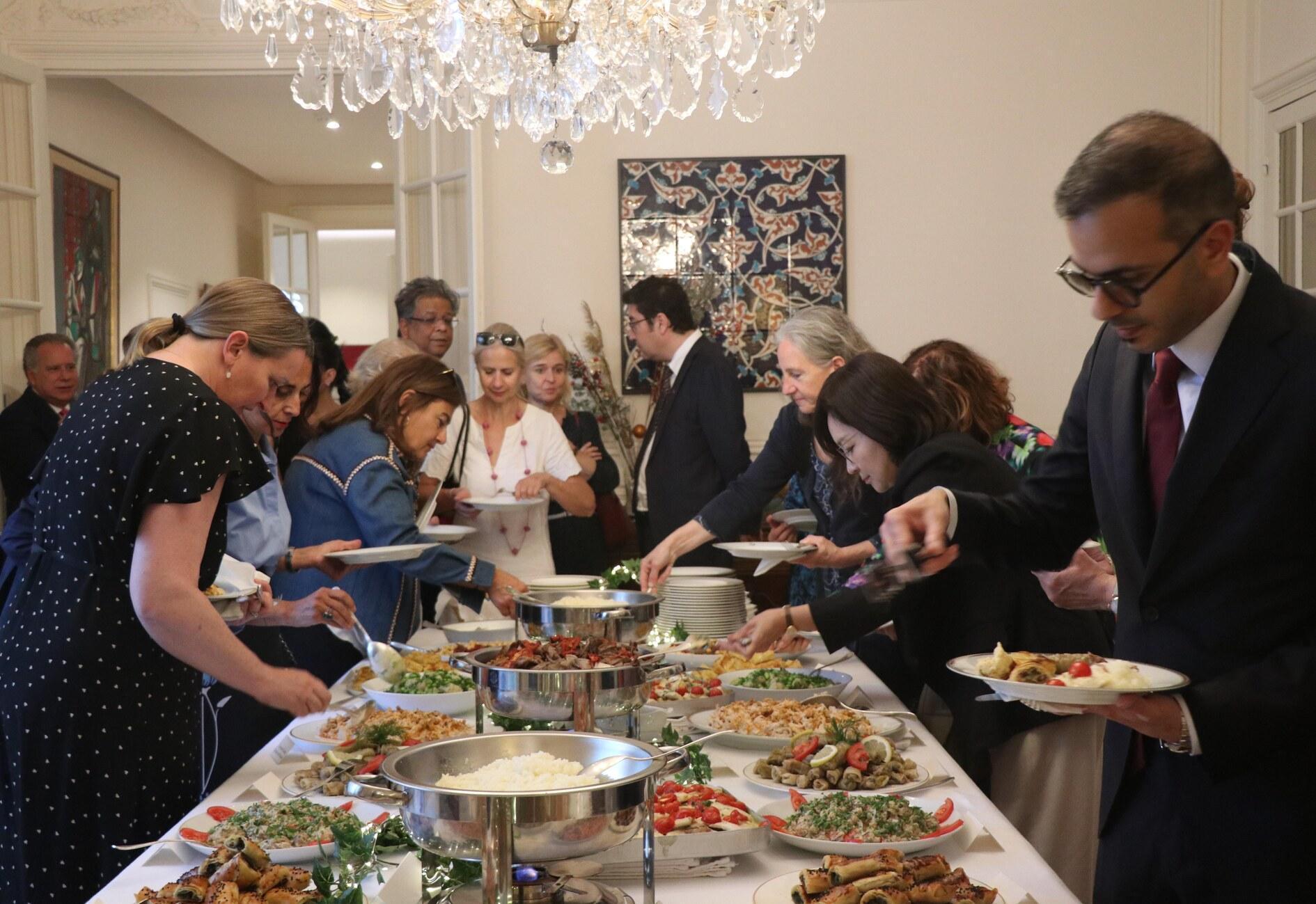Iran offers a new regional paradigm for stability
Serkan Demirtaş - TEHRAN

This handout picture provided by the media office of the Iranian presidency shows President Masoud Pezeshkian (R) attending the Tehran Dialogue Forum in Tehran on May 18, 2025
Iran, considered to be the most affected by the recent regional developments following the regime change in Syria and Israel’s attacks targeting its territories, is offering a new approach of cooperation and unity to the countries in its near neighborhood amid prospects for a compromise with the West over its nuclear activities.
Senior Iranian officials, including President Masoud Pezeshkian and Foreign Minister Abbas Aragchi as well as former Foreign Minister Javad Zarif, reassured Iran’s readiness to start a new episode in ties with the regional countries and beyond, based on cooperation, economic development and mutual interests in their statements during the two-day Tehran Dialogue Forum held in the Iranian capital on May 18 and 19.
The annual forum brought around 250 guests from dozens of countries for a comprehensive debate over global and regional matters with the participation of foreign ministers, senior diplomats, academics and decision-makers.
Last year’s TDF could not take place due to the tragic helicopter accident that killed former Iranian President Ebrahim Raisi and Foreign Minister Hossein Amirabdollahian.
The 2025 edition of the TDF comes days after Iran and P3 countries negotiated over a nuclear deal in Istanbul and after the much-discussed visit of U.S. President Donald Trump to the Gulf, where he described Iran as a source of threat.
Pezeshkian, who made the opening speech of the forum, has elaborated on his administration’s position on nuclear activities and ties with the West and neighboring countries.
While repeating Tehran’s well-known criticisms against the U.S. and Israel, the Iranian president said, “My message for constructive engagement and expanding relations has not been received by the West. We have no conflict with anyone; we have extended a hand of friendship, brotherhood and harmony to all.”
The main message of Pezeshkian was the fact that his country needs to conduct nuclear research for peaceful purposes, including for agriculture and health, and it has nothing to hide. The Iranian head of the nation has underlined that Iran will never develop nuclear weapons for both religious and legal reasons.
Aragchi, too, in his address, underlined Tehran’s official positions regarding the actual diplomatic agenda, especially on the continued massacres by the Israeli government on the Palestinians and nuclear negotiations.
“We are seeking a fair and balanced agreement that fully respects Iran’s nuclear rights under the NPT and leads to the tangible and verifiable removal of sanctions,” he said.
The Iranian top diplomat reiterated that the foreign policy of Pezeshkian’s administration was based on three pillars: expanding ties with neighbors, strengthening cooperation with emerging powers and the Global South and balancing relations with both Eastern and Western blocs.
Out of these three, expanding ties with regional countries have been one of the issues most discussed by the participants, especially Zarif, who served between 2013 and 2021.
For Zarif, there is an obvious need for a new paradigm to be adopted by the regional countries in the face of a shifting balance of power, and this new process should be led by Iran.
“Iran should change its vision and should not look at the region from the prism of threat. Iran should outline a new understanding, but it takes to tango. So, I invite all the countries in the region to change the paradigm, and I hope Iran will be the pioneer to this end,” he said.
The former minister underlined that the countries in the region should better focus on the future, saying, “Let’s not be the prisoner of the past.”
















